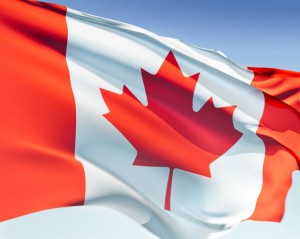Feds to Help Immigrants Adapt to Workforce
Getting a job when you get to Canada is about to get easier for more immigrants, says Citizenship and Immigration Minister Jason Kenney.
The Canadian Immigration Integration Project (CIIP), which began in 2007 as a pilot program, is getting $15 million over the next three years to expand its services in India, China and the Philippines, as well as to open a new office in London, England. The new office will serve prospective immigrants in Scandinavia, Britain and the Gulf States.
The CIIP offers prospective immigrants a variety of services, from seminars on what the labour market is like in Canada and how to apply for a job to how to get their university credentials recognized.
“We want newcomers to be able to use their skills as soon as possible in Canada,” Kenney said Thursday, pointing out that in the past immigrants arrived at the airport only to sink or swim.
The service has helped 7,000 people so far, Kenney said, rattling off examples of recent immigrants who successfully got jobs in Canada after being helped by the CIIP.
One problem, Kenney said, is only one third of immigrants know the service exists, sometimes because their immigration counsellor didn’t transmit the government advisory.
New Democratic Party immigration critic Olivia Chow welcomed Kenney’s announcement but said it is a half measure that doesn’t go far enough. Chow said he should expand mentorship, bridging and internships programs for immigrants in Canada and expand opportunities for new immigrants in the federal government.
Bloc Quebecois critic Thierry St-Cyr said it was a positive step but the federal government should ensure that immigrants know about Quebec’s differences.
Take our FREE Online Assessment Today!
Socialize with Abrams & Krochak
Winter Games’ legacy: Canadian Resiliency
With a wink of its eye, Canada brought to close the Winter Olympics by making fun of one the glitches that plagued the first week of the games.
As the closing ceremonies began, a mime with a tool belt came out to the caldron, where one of the legs was still in the floor of BC Place, having failed to rise during the opening ceremonies 17 days ago. The mime found the power cords weren’t connected, but when he plugged it in, sparks flew from the power supply. The mime found a rope and pretended to pull the fourth leg up into place as the crowd roared its approval.
It was with a smile that Canada wrapped up the games, having won the most gold medals any nation has won in any Winter Olympics and having won back the hockey gold medal it feels should permanently reside here.

It was a 180-degree reversal from the way the games began when critics complained about the warm, rainy weather, observers criticized the safety of the track after the death of a luger in a training run and Canadians wondered what was going on with the caldron and their athletes, for whom officials from the host nation had predicted overwhelming success.
As the opening ceremonies came to a close, speed skating legend Catriona LeMay Doan was left there, with her torch, wondering what to do. And Canadians asked themselves: What next?
LeMay Doan got her chance to light the caldron after all. As the mime raised the stubborn leg during the closing ceremonies, LeMay Doan came out beaming with her torch.
She wasn’t the only Canadian beaming Sunday. Despite a slow first week on the tracks, rinks and courses of the games, the home team became a story of resiliency and national pride.
Joannie Rochette, who lost her beloved mother to a heart attack two days before she was to compete in the first night of figure skating, was chosen as the Canadian flag bearer for the closing ceremonies. The 24-year-old skater will long be remembered as the symbol of these games for her strength in a time of personal crisis.
Rochette skated flawlessly in that first night of the competition, then dazzled the crowd in the free skate, winning the bronze medal, the hearts of a nation and the respect of those watching around the world.
Years from now, they will talk of her strength and her bravery, but she just saw herself as the daughter who shared a dream with a mother who wouldn’t let her fail.
She wasn’t perfect in her performance, but in an imperfect games, she was a beacon of all that is right about sports.
The head of the host organization said his nation was proud of the way it had revealed itself to each other and to the world.
“I believe we Canadians tonight are stronger, more united, more in love with our country and more connected with each other than ever before,” John Furlong, chief executive officer of VANOC, said. “These Olympic Games have lifted us up. If the Canada that came together on opening night was a little mysterious, it no longer is. Now you know us, eh?”
The rest of the closing ceremony became a lighthearted tribute to Canada, featuring comedians and some of its most famous singers, like Neil Young, Michael Buble and Alanis Morissette.
These Olympics needed saving. Even as thousands of fans and reporters were arriving the first week, it almost seemed as if the games were a national embarrassment.
The problems actually started a month before the Olympics opened, as Vancouver went through the warmest January in history. The well-above-freezing temperatures caused some observers to call these the Spring Olympics.
Vancouver Organizing Committee officials said that while it wasn’t the weather they expected when they won the bid for the games in 2003, it really wouldn’t prevent the outdoor events from taking place.
During those first rough days, Canadian officials tried to reassure the nation and the world that the host country would do well on medals, and that they had planned for weather pitfalls.
With the Winter Games closing Sunday night, you could almost hear the voices of Canadian officials saying, “We told you everything would work out.”
It was on the slopes of Whistler Creekside where two of the most compelling stories of these Winter Olympics unfolded.
One belonged to Lindsey Vonn, the U.S. skier who had dominated the World Cup. She was a medal favorite in four of the five Olympic events she entered, but on the eve of the games, she suffered a major shin injury. The weather delays gave her more time to heal. She won two medals, a gold in the downhill and a bronze in the Super G, but crashed in her other three events.
On the other end of the spectrum was former bad boy Bode Miller, who made more news partying at the 2006 Olympics than he did on the slopes. But 2010 will be remembered for how he redeemed himself by skiing to three medals, including a gold in the super combined. He became the most decorated U.S. Alpine skier in history.
Speed skater Apolo Anton Ohno also wrote himself into the U.S. medals record book with a silver in the 1,500 meters short track final, a bronze in the 1,000 meters and a bronze in the relay. With eight medals, he has won more medals than any other U.S. Winter Olympian in history.
Other athletes who impressed:
• Marit Bjoergen of Norway was the leading medal winner of the games, taking home five medals in cross-country skiing — three gold, one silver and one bronze.
• Short track speed skater Wang Meng of China, who won three golds (1,000 meters, 1,500, relay).
• Norway’s Ole Einar Bjoerndalen, who won his sixth career Winter Olympics gold, in the 4×7.5km cross-country skiing relay.
• Germany’s Magdalena Neuner, who won two individual gold medals in biathlon, and then gave up her spot in the relay so a teammate would have a chance to medal;
• Slovenia’s Petra Majdic, who won bronze in the women’s sprint cross-country skiing race, despite racing through the heats with four broken ribs suffered in a training run.
The medals podium belonged to the United States, despite the “Own The Podium” program — with its millions of dollars poured in by the Canadian government — that the folks from the host nation bragged would make them the top team at the games. In the end, while they owned the top step, their neighbors borrowed the podium for 17 days.
The U.S. won a record 37 medals. The total included golds by the four-man bobsled team led by driver Steven Holcomb, the first gold medal ever by a skier in Nordic Combined (Bill Demong), and the expected brilliance of Shaun White in the snowboard halfpipe.
Despite a slow start and some disappointments in events that were supposed to be almost sure things, the Canadians won a record number of gold medals.
That number included men’s hockey, beating the United States 3-2 in overtime — a dream result for the host nation.
The games had started in the most awful, sobering way possible, with the news of the death of Georgian luger Nodar Kumaritashvili.
His fatal training accident called into question he safety of the track and spotlighted the fact that Canadian athletes had had far more training time on the tracks, slopes and facilities of these games.
Members of the British press blamed Kumaritashvili’s death on the organizers’ “lust for glory.”
The criticism stung, but Canadian officials and fans were resilient.
If you don’t know the words to “O Canada,” you have not been in Vancouver these past two weeks.
It was being sung everywhere, in bars, on the streets, in arenas, even during low points such as Canada’s loss to the United States by 5-3 in the men’s hockey preliminary rounds.
And whoever makes Maple Leaf flags probably has already made a year or two’s worth of profit.
Take our FREE Online Assessment Today!
Socialize with Abrams & Krochak
Closing ceremony is unparalleled
There’s a reason we come, despite the nonsense. There’s a reason we come to the Olympics still, every two years now, despite the fact that sometimes you get William Shatner or the odd, massive inflatable moose. What with all the overdone stagecraft and security hassles, the butt-covering parsing of words or the smugness of IOC officials who speak of an “Olympic movement” that never moves quite far enough when it comes to abuses committed under those oh-so-hallowed rings, it’s easy to forget.
But the reason rises most clearly, every time, at the end.
It rises during the closing ceremony, at the moment when stagecraft fades and the simplest of human acts begins. The athletes walk in.
That’s it: They walk into some stadium, as they did again Sunday evening at Vancouver’s B.C. Place to end the 2010 Winter Games, and the clearest picture of what the Olympics meansemerges. Young people who have spent the months serving as civic heroes, national symbols, stand-ins for millions, become young again. Unlike the opening ceremony tradition of marching in national delegations in strict order, under a flag, at the closing men and women who have sweated against each other for weeks, sometimes years, walk out in an easy jumble, and soon mix, stand and dance until all national colors and flags become irrelevant.
It happened again Sunday. There the athletes were, smaller and more real suddenly, snapping pictures like tourists, waving to cameras — “Hi, Mom!” — milling aimlessly, mashed together in the most accomplished mosh pit in history. Canadians, Americans, Russians, Finns: all the stiffness, posing, pre-competition jitters was gone, dissolved in a moment of pure fun. There’s nothing else like it in sports.
We didn’t get that in Beijing. Organizers at the 2008 Summer Games ran a minutely-controlled and choreographed farewell that looked great on TV, but killed any hint of spontaneity; the athletes were all but herded into pens. But Canada is no China; it’s the land of half the world’s great comedians. When a faux-repairman, giant screwdriver on his belt, kicked off Sunday’s festivities by “fixing” the same arm of the cauldron that so infamously failed to rise at the opening ceremony, allowing speedskating legend Catriona Le May Doan to finish the torch-lighting ceremony she missed a fortnight ago, we knew we were in good hands. Nothing is so endearing — and rare — as an Olympic host that can laugh at itself.
Then again, Canada could afford such looseness. The same Olympics that had begun with disaster, with the death of a 21-year old Georgian luger on the morning of the opening ceremony, and spent its early days focused on weather problems, a massive ticket cancellation, and the seeming underperformance of Canada’s Olympians, had ended in triumph.
A late surge by Canadian speedskaters and curlers pushed the host nation to a best-ever medals showing at a Winter Olympics, and the ice hockey team’s rapture-inducing, overtime victory over the U.S. Sunday pushed Canada to its 14th gold medal, the most ever won by any country at a Winter Games. Coming in, Canada had spent $110 million on athlete support and vowed to “Own the Podium” by winning the overall medal count. It didn’t come close. But after Kid Canada, Sidney Crosby, scored the golden goal in overtime, it didn’t matter a bit to anyone north of the 49th parallel.
“Alexandre,” VANOC Chief John Furlong, said during his speech to moguls skier Alexandre Bilodeau, “your first gold medal gave us all permission to feel like and behave like champions. Our last one will be remembered for generations.”
Furlong’s delivery may have been stilted, but the response was not. The crowd of 60,600 rose to its feet, unscripted, and stopped his closing speech cold for a good minute, cheering the biggest win in Canadian hockey history. Such chesty flagwaving was seen across Vancouver and Canada throughout these games, but hit new levels in the aftermath of the hockey win — horns beeping, men hugging, a once-shy country openly reveling in its success.
“That quiet, humble national pride we were sometimes reluctant to acknowledge seemed to take to the streets as the most beautiful kind of patriotism broke out all across our country,” Furlong said. “So many new and dazzling applications for the Maple Leaf.”
But other flags had their moments in Vancouver, too. Norway, a country of just 4.7 million, finished fourth in the medal count with 23, and produced the most accomplished male athlete in cross-country skier Petter Northug, who finished with two golds, one silver and one bronze medal. The USA’s 37 medals set a record for success at a Winter Games, and came amid the most controversy-free American performance in decades. With skier Bode Miller redeeming his cavalier performance in Turin, Team USA kept as low a profile as an athletic superpower can, predicting no wins, displaying no arrogance, celebrating with class. It was a switch no one predicted: The Canadians acted more like out-there Yanks, and the Americans acted like humble Canucks. And it helped set, for these games, a graceful tone.
Indeed, though the first official response to the death of Nodar Kumaritashvili — both VANOC and the international luge federation placed the blame on the 21-year old Georgian while making adjustments to the wall, ice and start of the notoriously fast track — was both cold and absurd, the remainder of the 2010 Olympics was all but free of controversy. For the first time since the bombings of Sept. 11, an Olympics went off without terrorism casting a pervasive shadow, without the intrusion — if you except Canada’s genial border “war” with the USA — geopolitical themes of any kind. Unlike Beijing or history-laden Athens, these were a Seinfeld Olympics, about nothing, really, except great competition.
“These were,” declared a visibly relieved IOC president, Jacques Rogge, “excellent and very friendly games.”
That should be the case for the Summer Games in London in two years, but 2014 is already taking on curious dimensions. Like the Chinese did with the Summer Games, Vladimir Putin‘s government has made clear that it plans to use the Winter Olympics in Sochi as a coming-out party for the new Russia. No shock there, but it does assume the task with far less momentum than Beijing. Team Russia, after all, was the most glaring disappointment in Vancouver, its 15 medals (three gold), a steep decline from the 22 it took home from Turin. Meanwhile, its most popular star in the West, hockey player Alex Ovechkin, came into Vancouver an Olympic hero for claiming he’d play in Sochi even if the NHL didn’t release its players — and went out in shame.
Not only did Ovechkin fail to produce during Russia’s ghastly 7-3 loss to Canada in the quarterfinals, but he also shelved his usually gregarious personality in Vancouver and proved a gloomy, surly presence, snubbing the media and shoving to the ground one eager fan with a YouTube ready camcorder. Of course, when he popped up onstage Sunday night, Ovechkin was all smiles again, posing as one of Sochi’s welcome ambassadors with three cute children, and lending athletic, gap-toothed form to Churchill’s famous formulation about Russia — “a riddle wrapped in a mystery inside an enigma”.
Canada — its people, its athletes, its lovely host city — was hardly that the last two weeks. The country made itself known. Here’s betting that, come 2014, it will be missed.
Take our FREE Online Assessment Today!
Socialize with Abrams & Krochak
Canada Beats Americans 2-0 for Third Women’s Hockey Gold
Instead, a capacity crowd at Canada Hockey Place that included Wayne Gretzky and actor Michael J. Fox, paired with a superhuman effort by Canadian goaltender Shannon Szabados, lifted Team Canada to its third consecutive Olympic gold medal.
Canada’s 2-0 victory gave the hockey-crazed Olympic host country its most treasured medal to date in this Games.
“We know they’re cheering for us. Where’s the pressure in that?” Szabados said.
That precious gold came at the expense of a U.S. women’s team looking to reverse its Olympic fortunes.
Since winning gold at the 1998 Games, where women’s hockey made its Olympic debut, the USA has come up short of a repeat with two silvers (2002 and 2010) and a bronze (2006).
Four-time Olympian Angela Ruggiero, who put off pursuing a career to try for another gold at this Games, cried on the ice as Canada celebrated.
“You really give your life to it, make a lot of sacrifices,” she said later, “so you’re hoping to win that gold medal.”
Team Canada, which came back on the ice after fans left to celebrate with cigars and champagne, has ruled the Olympic landscape since losing to the USA in the 1998 title game. Szabados, a 23-year-old Olympic rookie, ensured Thursday that reign would continue, making 28 saves, many of them trigger-quick glove saves.

“At times we kept throwing the puck to her glove side,” said Ruggiero, who led Team USA with six shots on goal. “We should have thrown it low, then tried for rebounds.”
Canadian coach Melody Davidson did not reveal her goalie for the gold medal game until players took the ice.
Davidson recalled afterward that, in her first meeting with Szabados, the young goaltender asked if she could get in just one game against the USA. She played in more than that, and she played gloriously in the one that mattered most.
“Obviously, she had the weight of her country on her, and I thought she responded well for the entire game,” U.S. coach Mark Johnson said.
She was so impenetrable the Americans played more than two minutes in the first two periods with a five-on-three advantage but couldn’t score.
“She stole the game from us,” U.S. forward Monique Lamoureux said.
Another Olympic rookie, Marie-Philip Poulin, 18, gave the Canadians all the scoring they needed with two first-period goals. Those goals and Szabados’ saves became the convincing arguments that, after losing the last two world championships against the USA, Canada has turned the tide.
Just in time to deliver gold under pressure.
“I was standing on the blue line after the game, thinking, ‘Did I really just get a shutout?’?” Szabados said.
Archives
- June 2025
- March 2025
- February 2025
- December 2024
- October 2024
- June 2024
- May 2024
- April 2024
- January 2024
- November 2023
- July 2023
- June 2023
- May 2023
- January 2023
- November 2022
- April 2022
- March 2022
- February 2022
- October 2021
- June 2021
- April 2021
- October 2020
- September 2020
- June 2020
- May 2020
- April 2020
- March 2020
- December 2019
- January 2019
- December 2018
- November 2018
- August 2018
- June 2018
- April 2018
- January 2018
- December 2017
- November 2017
- April 2017
- January 2017
- December 2016
- November 2016
- October 2016
- September 2016
- August 2016
- August 2015
- January 2015
- December 2014
- November 2014
- June 2014
- April 2014
- March 2014
- February 2014
- December 2013
- May 2013
- April 2013
- January 2013
- December 2012
- August 2012
- June 2012
- March 2012
- January 2012
- September 2011
- August 2011
- July 2011
- June 2011
- February 2011
- January 2011
- December 2010
- November 2010
- September 2010
- August 2010
- July 2010
- June 2010
- May 2010
- April 2010
- March 2010
- February 2010
- January 2010
- December 2009
- November 2009
- October 2009
- September 2009
- August 2009
- August 2008
- July 2008
- June 2008
- May 2008
- April 2008
- March 2008
- February 2008
- January 2008


